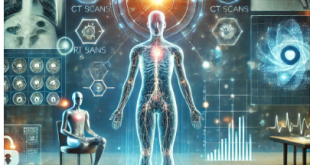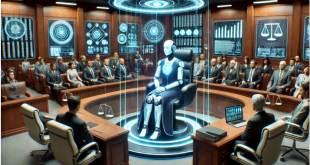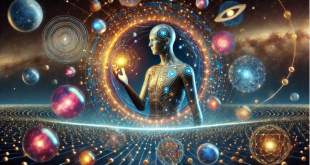Introduction
The last few years have seen tremendous development in artificial intelligence. It is changing industries, m
aking new applications possible, and even generating philosophical questions regarding the place of this new technology in society. With advancements in natural language processing, computer vision, and reinforcement learning, AI is better than ever. In what follows, let’s take a look at some of the key areas of AI development, examining technological breakthroughs, ethical considerations, and potential impacts on society.

1. NLP:
Closing the Communication Gap
Natural Language Processing is the ability of machines to understand and generate human language. Models such as OpenAI’s GPT-4, Google’s PaLM, and Meta’s LLaMA can produce coherent text with context. These models are based on massive datasets and use transformers, a kind of neural network architecture that allows more nuanced language understanding and generation.
These advanced NLP models have applications that include virtual assistants, customer support chatbots, and impressive applications in real-time language translation and content creation.
2. Computer Vision:
Powering Autonomous Systems and Beyond
In this sphere, much has been gained from computer vision technology, which allows machines to read and understand visual information almost as effectively as their human counterparts
orks have pushed the development of applications in healthcare, autonomous vehicles, and security.
In the healthcare segment, imaging tools powered by AI could analyze medical images with extremely high precision and identify abnormalities that human eyes would bypass to help doctors diagnose problems.
3. Reinforcement Learning:
Driving Autonomous Decision Making
This learning concept is referred to as Reinforcement Learning (RL). This system trains the AI agent for making decisions in dynamic environments through using trial and error in order to maximize the cumulative reward. The algorithm in the RL domain has experienced large success in gaming sectors, robotics industries, and industrial automation. For example, the AlphaGo program developed by Google DeepMind won against the world champion Go players. Similarly, OpenAI’s bot playing Dota successfully competed with top human players.
4. Generative AI:
Creating New Content and Art Forms
This category belongs to the generative AI, where it produces fresh content based on the learned patterns from the given existing data. Generative AI changes the nature of fields like art, music, and content creation using deep neural networks that are somewhat similar to GANs, VAEs, and diffusion models.
While generative AI lets one create novel concepts that can inspire a new perspective into things, it does not come without concerns over copyright infringement, authenticity, and misuse in the creation of deepfakes.
5. Ethics in AI:
Responsible Development
After all, the increasing implementation of AI into everyday life seems to raise ethical concerns. Efforts have been noted lately in rectifying those concerns through fairer algorithms, anonymized data practices, and optimizing AI models to consume less energy.
More organizations and governments are also imposing regulations over the responsible development of AI. The European Union AI Act is one such measure, which seeks to regulate deployment in AI systems that touch areas such as health, transport, and security.
6. Quantum AI:
Peeking into the Future
Quantum computing is still in its infancy, but, in its marriage with machine learning, it promises to advance AI beyond the confines of what can be done today. Quantum AI uses the quantum approach to manipulate huge data sets, a processing capacity impossible to be rivaled by any classical computer. It holds several research opportunities for detailed optimization, enhancing drug discovery, and expediting machine learning algorithms.
Conclusion:
The Future of AI and Its Societal Impact
Such is the future taking shape through AI advances, from which intelligent systems are bound to evolve and augment human capabilities, streamline industries, and transform life as it is today. With responsibility comes such a future: society must ensure that these are developed and deployed in an ethical manner-a manner of transparency, with consideration to the impact on people and communities.


